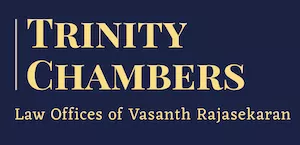- within Litigation and Mediation & Arbitration topic(s)
- in United States
- within Litigation and Mediation & Arbitration topic(s)
- with readers working within the Law Firm industries
- within Real Estate and Construction, Government, Public Sector and Insolvency/Bankruptcy/Re-Structuring topic(s)
- with Finance and Tax Executives
Introduction
The Supreme Court in Serosoft Solutions Pvt. Ltd. v. Dexter Capital Advisors Pvt. Ltd. [2025 INSC 26] examined the extent to which High Courts can interfere in ongoing arbitration proceedings under Article 227 of the Constitution of India. The case arose from a commercial dispute where an arbitral tribunal denied a party's request for additional time to further cross-examine a witness. The High Court, exercising its supervisory jurisdiction, overturned the tribunal's decision and granted additional time. The Supreme Court, however, set aside the High Court's order, reinforcing the principle that judicial intervention in arbitration proceedings should be minimal and only exercised in cases of clear perversity or miscarriage of justice.
Brief Facts
The appellant, Serosoft Solutions Pvt. Ltd., is a startup providing educational software and related services. The respondent, Dexter Capital Advisors Pvt. Ltd., offers capital advisory services. A dispute arose under a Client Service Agreement, under which Dexter Capital Advisors was to provide advisory services to Serosoft Solutions. Alleging non-payment of fees, Dexter Capital Advisors initiated arbitration.
The arbitral tribunal was constituted, and both parties submitted their pleadings. The tribunal framed issues and commenced proceedings. The respondent produced two witnesses, CW-1 and CW-2, who were cross-examined by the appellant. The appellant then presented RW-1 as its witness, whose cross-examination began on 9 December 2023 with nine questions asked on that day.
Further cross-examination was scheduled for 10 February 2024, during which 104 additional questions were asked over the course of the day. Despite these extensive opportunities, the respondent sought yet another extension for cross-examining RW-1, leading to further delays.
The tribunal accommodated this request and scheduled further cross-examination on 1 October 2024, during which 28 additional questions were put to RW-1. After this session, the tribunal closed the cross-examination, holding that ample opportunity had been provided and directing the parties to proceed with final arguments.
However, on 3 October 2024, the respondent filed an application before the tribunal seeking yet another extension for further cross-examination. The tribunal, by its order dated 9 October 2024, rejected the request, emphasizing that arbitration is a time-bound process and that further extensions were unwarranted. The tribunal cited the respondent's repeated delays and lack of preparedness as key reasons for its decision.
Dissatisfied, the respondent approached the High Court under Article 227 of the Constitution, seeking judicial intervention to reopen the cross-examination.
Arguments from Both Sides
The appellant argued that the High Court's interference was unjustified, as the arbitral tribunal had exercised its discretion properly and had already granted multiple opportunities for cross-examination. It contended that reopening cross-examination at this stage would disrupt the tribunal's time-bound process and contradict the purpose of arbitration. The appellant emphasised that the High Court failed to establish any perversity or miscarriage of justice in the tribunal's decision, which is the only valid ground for interference under Article 227.
The respondent countered that cross-examination is a fundamental right under Section 18 of the Arbitration and Conciliation Act, 1996, which ensures equal treatment of parties. It contended that denying further cross-examination violated procedural fairness, thereby justifying judicial intervention. The respondent relied on Kelvin Air Conditioning and Ventilation Systems Pvt. Ltd. v. Triumph Realty Pvt. Ltd., 2024 SCC OnLine Del 7137, where the High Court held that judicial intervention is permissible in "exceptional rarity" where procedural fairness is at stake.
Findings of the Supreme Court
The Supreme Court reaffirmed that arbitral tribunals have autonomy over procedural matters and that judicial intervention should be exercised with extreme restraint. The Supreme Court found that the tribunal had already granted multiple opportunities for cross-examination. The respondent was allowed to pose 141 questions over three sessions spanning nearly 12 hours, which demonstrated that there was no denial of a fair hearing. The Supreme Court further noted that the High Court failed to establish any perversity in the tribunal's ruling, which is the only valid ground for interference under Article 227. Since the arbitral tribunal had acted well within its discretion, there was no basis for judicial intervention. Additionally, the Supreme Court observed that the High Court's reasoning that "cross-examination is an essential tool for discovering the truth" was merely a generic statement and not a substantive justification for setting aside the tribunal's decision. The Supreme Court emphasised that procedural fairness does not imply unlimited leeway for a party to seek repeated extensions.
The Apex Court also cautioned that excessive judicial interference undermines the efficiency of arbitration. It reiterated that judicial intervention should only be permitted in cases where the tribunal's decision is manifestly perverse or violates principles of natural justice. Finally, the Supreme Court emphasised that the High Court's intervention had unnecessarily prolonged the arbitration process, thereby defeating its time-bound nature. The Supreme Court set aside the High Court's order and restored the tribunal's decision to close the cross-examination.
Comment
This judgment reinforces the well-established principle that judicial intervention in arbitration must be minimal and exercised only in exceptional cases. The Supreme Court unequivocally held that parties cannot unduly prolong arbitration proceedings by seeking repeated extensions under the pretext of procedural fairness. By upholding the autonomy of arbitral tribunals, the ruling ensures that arbitration remains an effective alternative to litigation.
A crucial takeaway from this case is that procedural fairness does not equate to unlimited procedural indulgence. The Supreme Court rightly emphasised that once a tribunal has granted reasonable opportunities, further extensions serve only to disrupt and delay the process.
The content of this article is intended to provide a general guide to the subject matter. Specialist advice should be sought about your specific circumstances.



